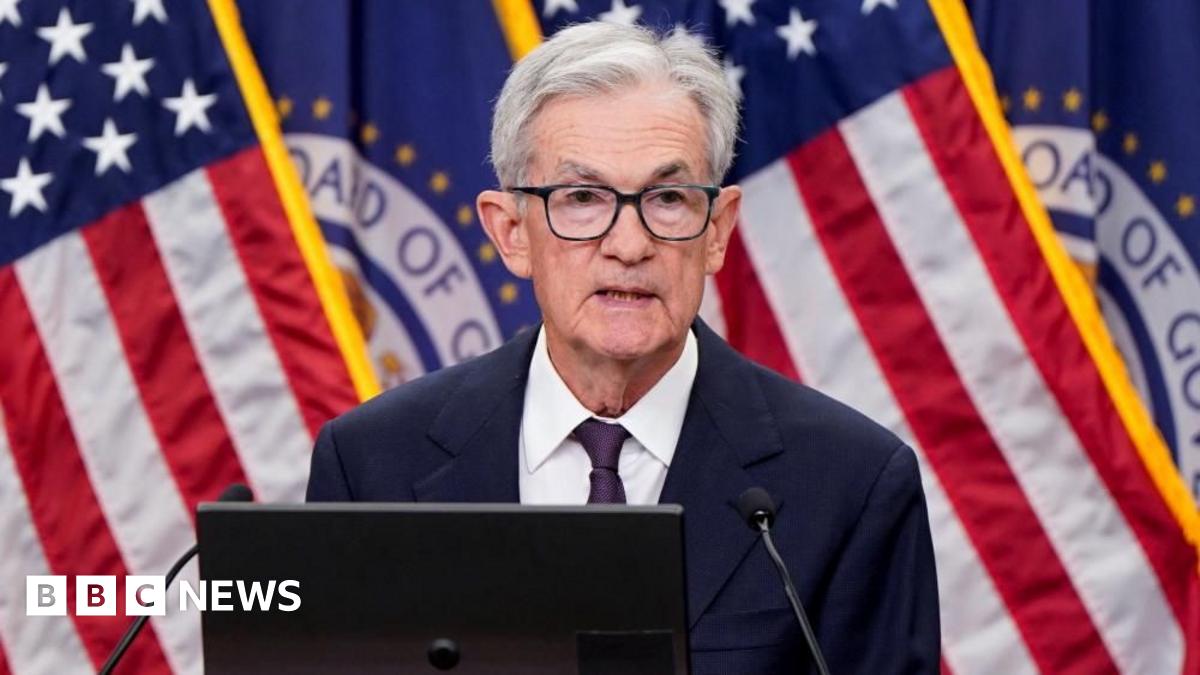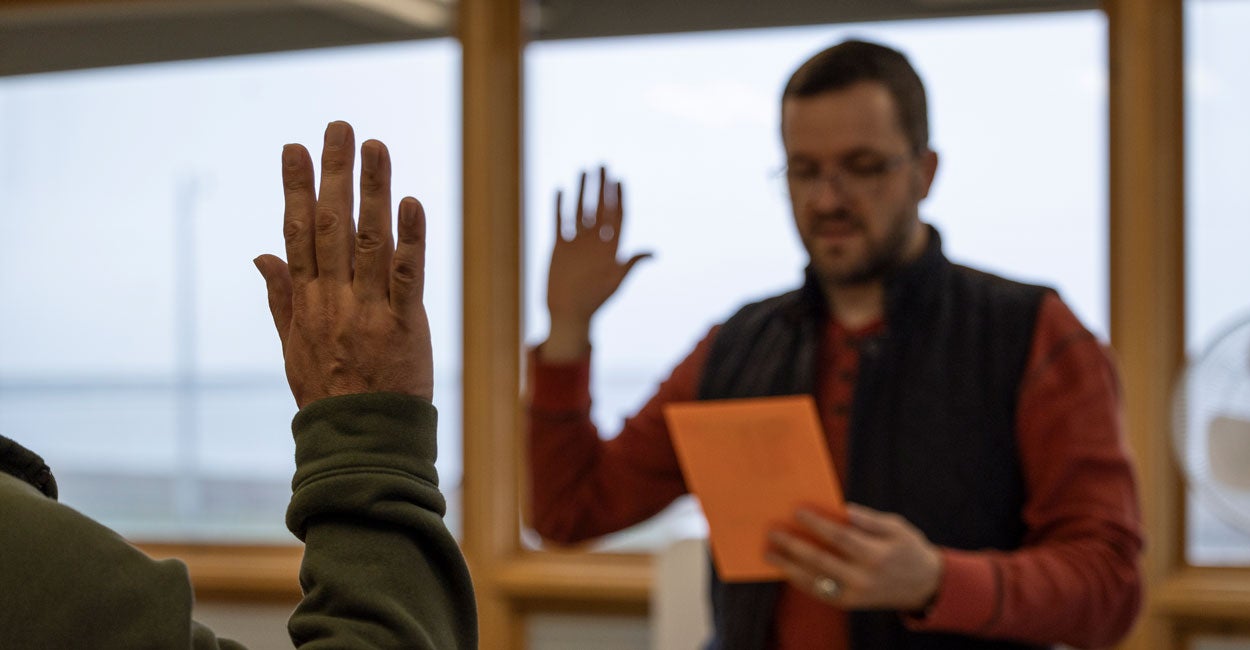(0:00 - 3:03)
It's called nudging, a form of psychological warfare where people are convinced to go along with a narrative while believing that doing so was their own idea. Globalist organizations such as the WHO, governments, and major corporations today all have nudging departments staffed by people who are experts in psychological manipulation. And clearly, it works.
As worldwide large numbers of people masked up even before masking was mandated, while others lobby governments for stricter environmental controls. Dr. Gary Sidley, a clinical psychologist in the UK, has written extensively on this subject, and especially how nudging has been used to advance both the COVID narrative and climate alarmism. In this interview, you'll learn how nudging works, and specifically what psychological buttons are being pushed to manipulate the behavior of the masses.
But more importantly, you'll learn how to recognize when you're being targeted by nudging messages, and how to resist them. Gary, welcome to the show. My pleasure, Will.
My pleasure. And thank you so much for not just for taking the time for this interview, but for all the articles you've written on nudging. And some of us are aware that this is something that's been happening, but not even I wasn't aware of the depth of it until I read some of your articles, and it's triggered a whole bunch of questions.
But for the viewers who may not understand what nudging is, could we simply start with that? Okay, there are various definitions of nudging. The most straightforward would be that it's a psychological strategy of persuasion that often has its impact on targets below their levels of consciousness. So in other words, the people who are being persuaded often are not aware that they are being persuaded in that way.
And so a lot of it is covert. There are other definitions, like there's a more academic one that came from a document called Mindspace back in 2010, which is one of the most famous nudge documents and was published the year that our Behavioural Insight team, the nudge unit, came into existence back in 2010. And their definition is a bit more convoluted.
I'll just read it to you. It's the application of behavioural strategies that achieve low cost, low pain ways of nudging citizens into new ways of acting by going with the grain of how we think and act, unquote. So it's how we think and act, going with the grain.
(3:04 - 3:26)
I think that is quite telling. I think what that's reflecting is that what nudges do is that they utilise humans' imperfections in the way they make sense of their complicated world. So it's all the kind of shortcuts and the thinking areas and perceptual areas that we make.
(3:27 - 4:14)
Behavioural science, nudging, uses those to get us to think and behave in a way that they wish us to. So nudging is essentially, it's using psychology, behavioural psychology, to get people to go along with whatever the agenda is and make them think it was their idea. Well, yes, because it's covert.
A lot of it's covert. Not all, but a lot of it's covert. They don't always know.
They're not aware that they are being influenced in that way. And so, yeah, that's what it is. And it's managed to find its way into every nook and cranny of our life here in the UK, and I think probably across the Western world as well.
(4:14 - 10:34)
And I was surprised. I wasn't, well, OK, I'd expected, for example, that the government was using nudging. But the WHO, they have their own whole nudging department, a whole behavioural psychology department.
And so I'm going to assume a lot of these other globalist organisations do as well. And so let's get into some specific examples, because you've written a lot about the masking and how people were nudged into doing that, to complying with this idea of wearing masks, even though prior to the COVID narrative, and I happen to know this myself because I was a paramedic when I was younger, mask manufacturers would print right in the boxes, it's not effective against viruses. And yet, they get all these people to wear masks.
How did they do that? Yeah, you're correct that behavioural science has a presence across the world, including the WHO, called the TAG, I think. And it's headed up by Professor Susan Michie, who's a prominent UK nudger, behavioural scientist. And masking is a topic very close to my heart.
And that's why I've written so much about it, because I think it's wrong and unhelpful on so many different levels. At its simplest, of course, it's one of the recommendations, one of the restrictions that was recommended during the COVID era. And like many of the others, it had very little evidence for effectiveness as far as a viral barrier.
So it was, in many ways, a pointless kind of restriction. But it's worse than that, because there's so many harms associated with it. Some of them physical, but for me, the most important are the social and psychological effects of masking in the community, where everybody's wearing these things and no one can see the face of their colleague or their friend.
The whole raft of harms with two numerous dimensions, I might just highlight one or two. We know now, we've got robust evidence that mass masking leads to some impediment in children's verbal and emotional development. So having caregivers and teachers masked up all the time, they get behind on their language skills, they get behind on their cognitive development.
Masking also results in an increased risk of falls in elderly people. It adds confusion. At times when you don't want confusion, such as doctor surgeries, when you have other elderly people in there who are already confused, and not being able to hear what's being said, because masks impact, of course, on how clear your voice is.
And it's anathema for people with hearing impairments. If you are a suicidal teenager, or a child in acute pain, the last thing you want is a kind of robotic individual whose face isn't on the show, and who therefore cannot connect in a human way with you. There's no kind of rapport, there's no banter, there's no empathy, there's no compassion.
So masks are harmful in a variety of ways. But another layer of them being kind of unhelpful, and one that I'm particularly interested in, is their impact on nudges. Because what a mask does, is it strengthens three of the main nudges that were used in the COVID event.
Three of the main nudges that have caused a lot of concerns around the ethics of their use. And those three nudges are fear, elevation. The frightening population tends to be a compliant one.
So if you increase fear, that tends to make people comply. The second is shaming. And the third is peer pressure, which can very easily swing into scaregoating.
So fear, guilt, shaming, and scaregoating. And a mask strengthens each of those. Well, obviously it kind of perpetuates fear.
Because when you and or I are wearing a mask, that screams that one of us must be a biohazard, must be a risk, it causes alarm. And the behavioural scientists knew that, and that's why they supported it, and that's why they never criticised it. Even the one or two that thought it wasn't a great idea.
Also, the thing about masks and fear is that it stops fear being dissipated. If you wear a mask 24-7 when you're out and about, you never learn that the world's a safe place. So you come back each evening, you take your mask off, you've survived, you haven't caught anything nasty, but you don't attribute that to the world being benign.
What you do is you think, phew, just made it, near miss, narrow escape, if I hadn't have had my mask on, who knows what would have happened. So a bit like wearing a clove of garlic to keep the vampires at bay. It doesn't reduce your belief in vampires even when you never get bitten, because you've had your garlic on and that's protected you.
So it inflates fear. Also, equally importantly, is that it's quite shaming as well, because it allows people to demonstrate what they call an ego nudge, which is equating wearing a mask with being a good, worthwhile individual. It is wrong on so many different levels, the most insidious of all the restrictions, in my view.
(10:35 - 11:47)
And we had all the same experiences here in Canada. Yes, the advertising, save grandma, and all the messaging that this is for the social good and, yes, being rejected if you don't go along. I myself never wore a mask.
I refused to do it. And yes, I did get abuse from people who were buying into the narrative, although most people just ignored me. Now, the thing that surprised me, though, was before they mandated the masks, but they had started to recommend them.
About one in four people was wearing them. And I was kind of surprised by that. I thought that was actually quite a high number when, I mean, let's face it, if you used your common sense, it was obvious the entire COVID narrative was false.
People were not dropping dead in the streets. Nobody I spoke to knew someone who had died of COVID or even become seriously ill with it. And yet we get one in four people walking around wearing masks even before it was mandated.
And then came the mandating of it. So that kind of messes things up. So what I'm asking about now has to do with that period of time where one in four people were voluntarily wearing them.
Were the masks themselves not a form of nudging?













